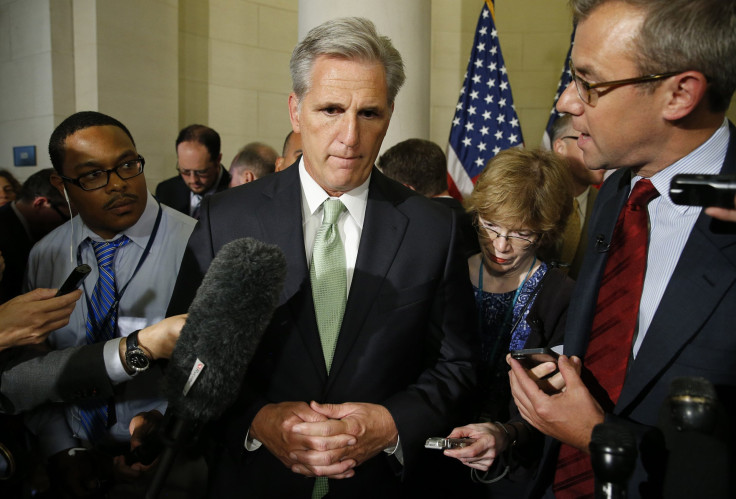Kevin McCarthy Elected Majority Leader To Replace Eric Cantor; Steve Scalise Wins Whip Race

House Republicans chose California Rep. Kevin McCarthy as majority leader Thursday, replacing Eric Cantor, who lost his Virginia primary to a Tea Party-backed opponent. McCarthy is considered one of the GOP's "Young Guns"-- as was David Brat, the man who vanquished Cantor.
But McCarthy is seen on the Hill as something of a pragmatist. He's also, said the Washington Post's Dana Milbank, a famously poor public speaker--which seems like a potential problem for someone now expected to speak for his party.
McCarthy’s ascent set up a contentious three-way race to replace him as majority whip, where a Tea Party favorite, Rep. Steve Scalise, R-La., beat out two other challengers, according to the Hill.
McCarthy, a Cantor ally who was first elected to Congress in 2006, prevailed, as expected, over Rep. Raul Labrador, R-Idaho, a favorite of the Tea Party, for the No. 2 post in the House Republican leadership. McCarthy is closer to Cantor on immigration than the Tea Party’s anti-"amnesty" stance for undocumented immigrants. While not going as far as Cantor’s position that children of illegal immigrants should be given a path to citizenship, McCarthy favors giving them some kind of legal status, according to the San Jose Mercury News.
It’s an area where McCarthy may have to tread carefully. The California Republican’s district is 35 percent Latino.
"McCarthy could find himself majority leader for a very short period of time and have no chance at the speakership," United Farm Workers President Arturo Rodriguez told the Mercury News. "If he's thinking long-term and thinking 'I want to be the speaker at some point,' he'd better focus on representing his constituency."
Cantor’s defeat by economics professor Brat was the biggest upset of the year so far. Political watchers are looking at upcoming primaries in Tennessee, Kansas and Mississippi to see how powerful the Tea Party is-- a now constant source of anxiety for elected Republicans.
© Copyright IBTimes 2025. All rights reserved.





















